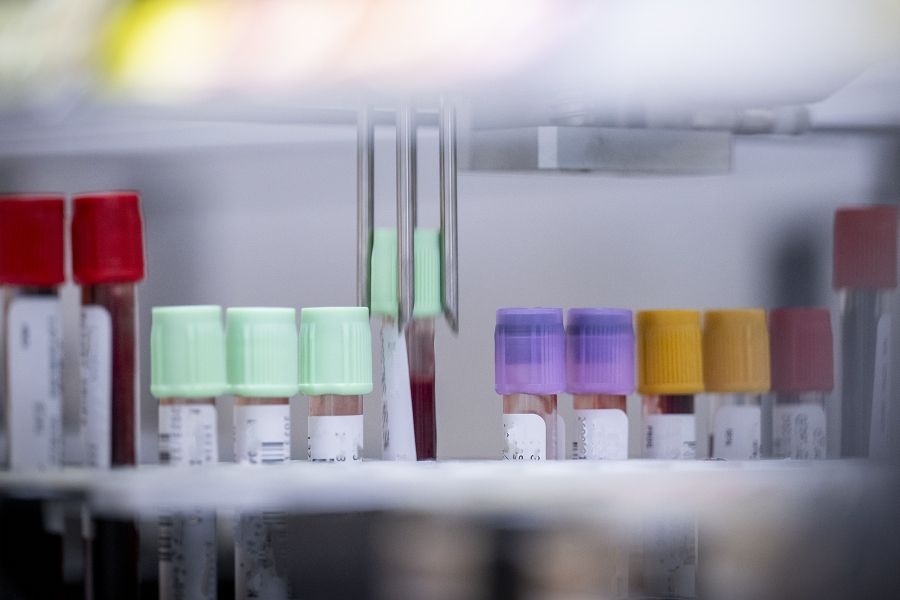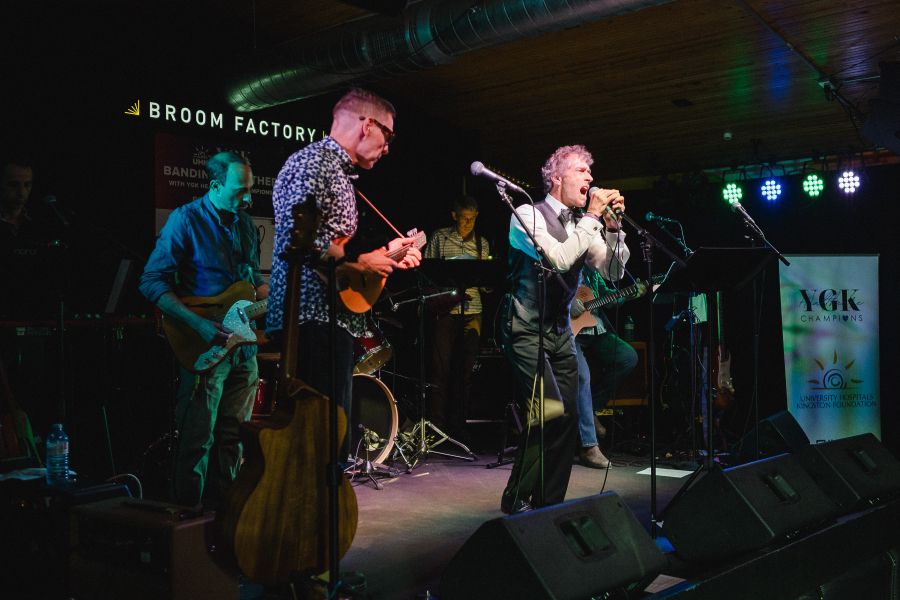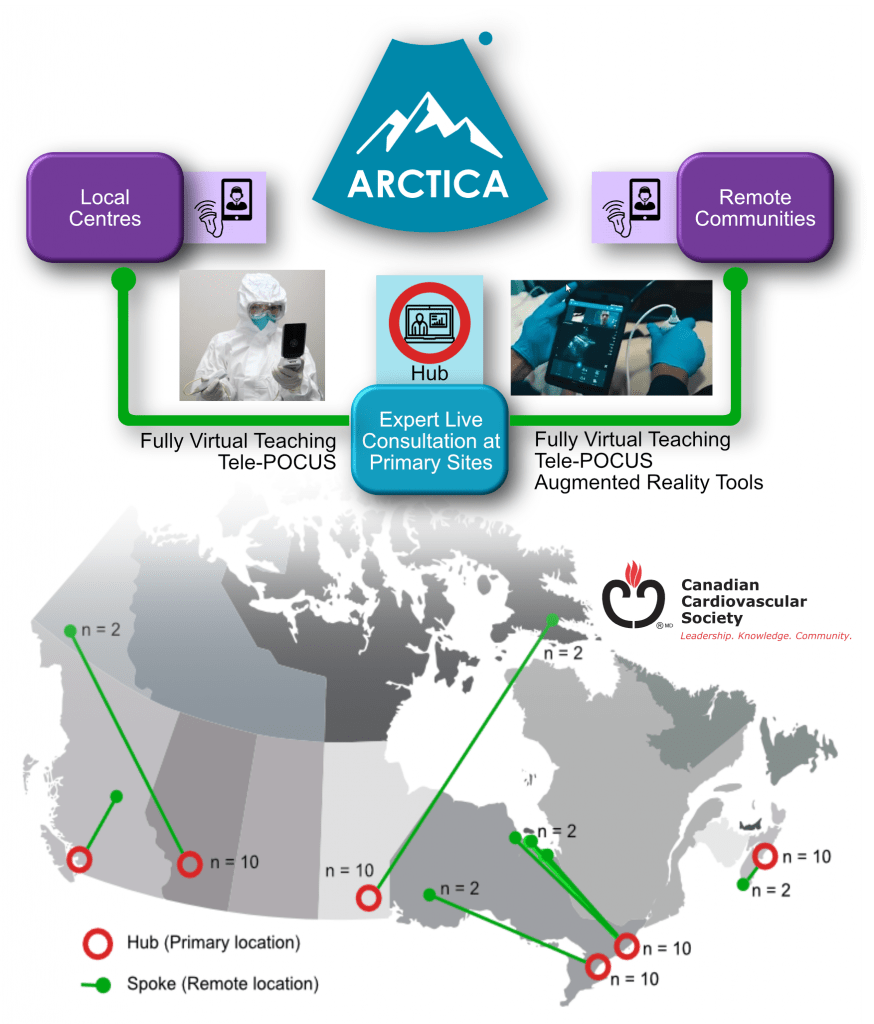
A new research project is helping to provide life-saving tools and training in point-of-care ultrasound for physicians working in remote healthcare locations. The Accelerated Remote Consultation Tele-POCUS in Cardiopulmonary Assessment (ARCTICA) project, which is rolling out across the country, is providing critical skills training and support at a critical time, as Canada struggles with the COVID-19 pandemic.
“Point of care ultrasound is a powerful tool for assessment both the heart and lungs in people who have shortness of breath,” says Kingston General Health Research Institute researcher Dr. Amer Johri, the Founder and Director of the Cardiovascular Imaging Network at Queen’s (CINQ) and a co-Investigator on the project. “But while ultrasound is available even in remote areas of Canada, many physicians lack the opportunity to develop expertise in this potentially life-saving skill.”
The project uses real-time remotely supervised ultrasound consultations and education modules to provide training and support for cardiopulmonary assessments of patients. Initially designed to support and remotely train physicians in COVID-19 wards, ARCTICA has been expanded to include patients with general shortness of breath (dyspnea).
Taking place in six academic centres across Canada, the program uses a ‘hub and spoke’ model, with each centre acting as an expert hub for a geographically remote satellite ‘spoke’ site. Along with live-streaming images for expert, real-time consultation, the study includes three point of care ultrasound modules (basics, cardiac and lung ultrasound) to provide e-learning for physicians, who review the modules and practice on local volunteers. After a week of training, participants are assessed through a virtual meeting with an educator. The program provides each spoke site with portable ultrasound devices that can used across a broader geographic area.
“The Hub and Spoke model brings state of the art technology directly into a remote community,” says Dr. Johri. “It’s a truly valuable tool in our fight against COVID-19, but will also change remote care over the long term, providing lasting benefits to these communities.”
As the research arm of the Kingston Health Sciences Centre, KGH Research Institute promotes basic and clinical medical research and experimental development to produce knowledge that transforms discovery into new treatments, cures, and better patient care.
Gallery
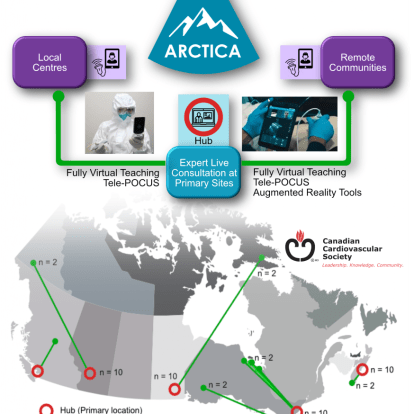
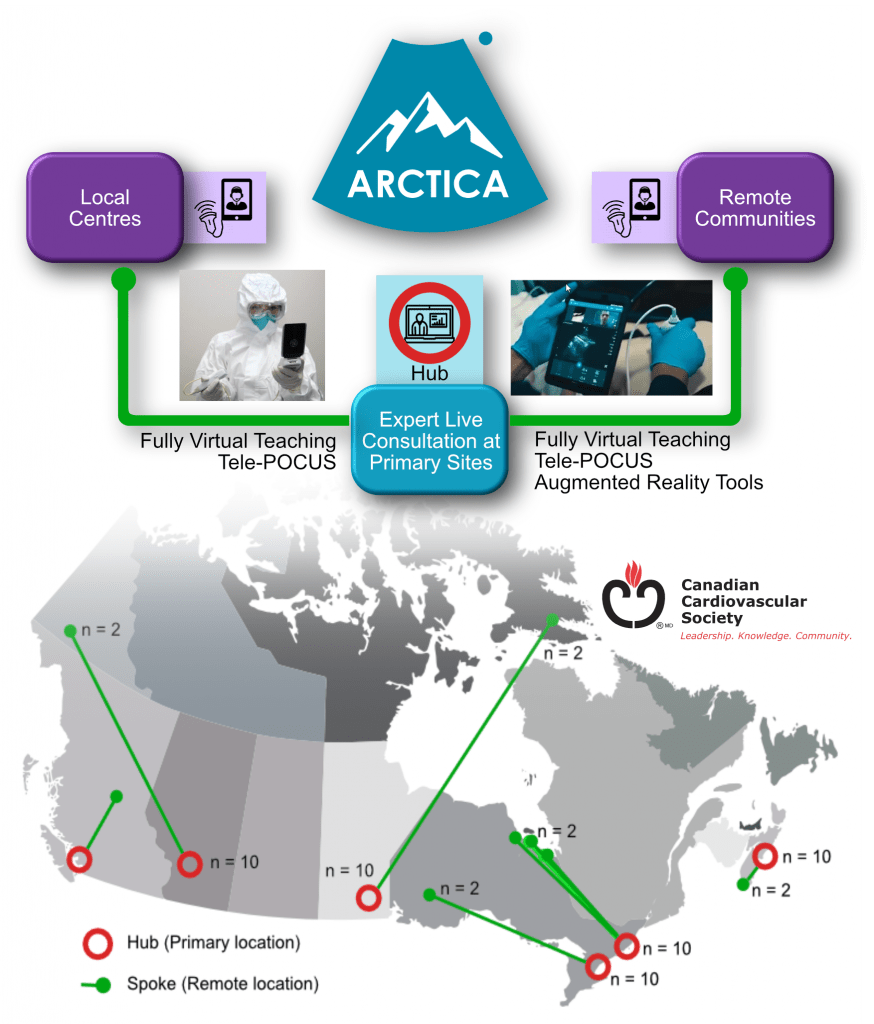
ARCTICA Hub-and-Spoke model of training and remote POCUS consultation.

